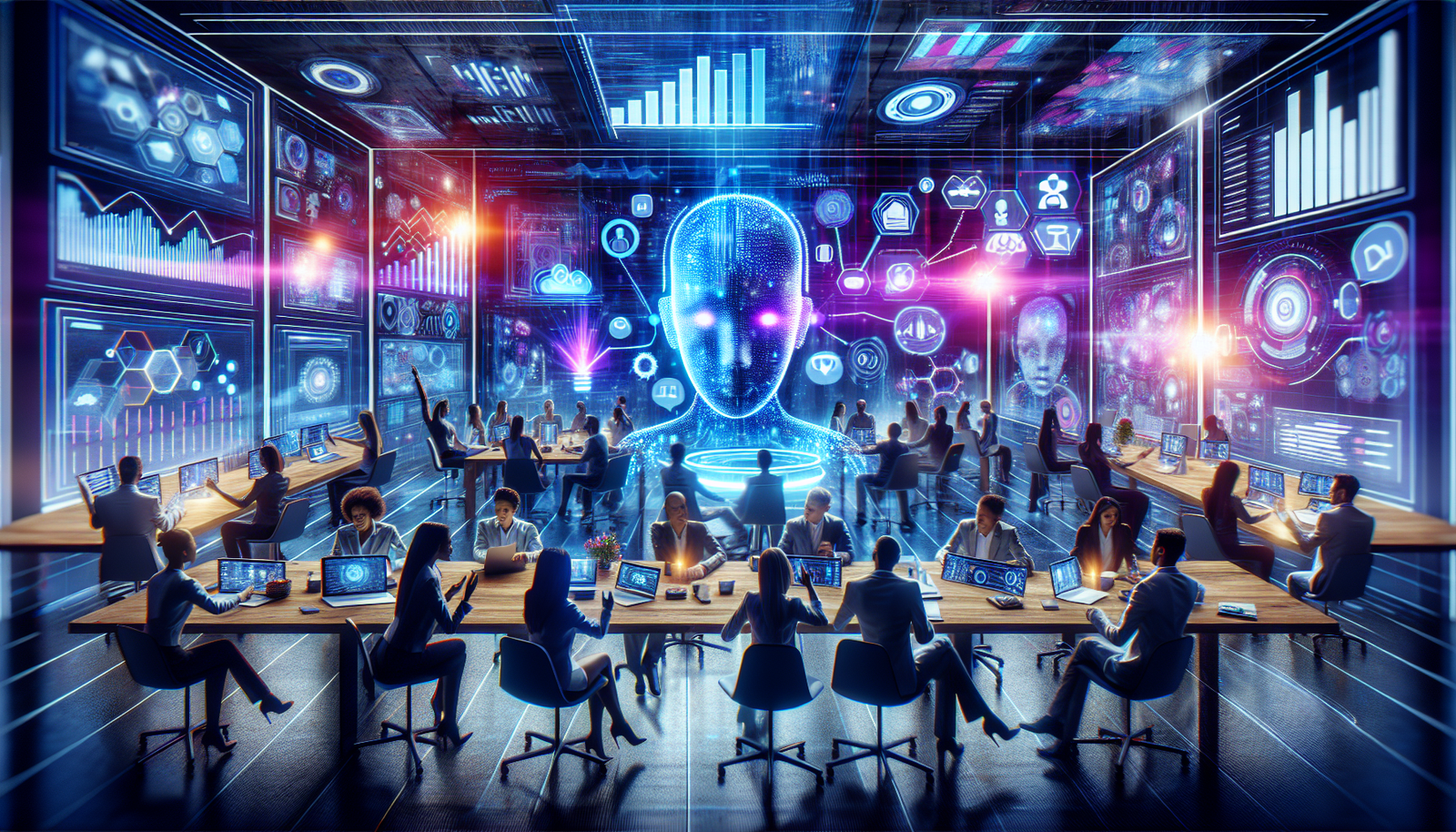Artificial intelligence emerges as an inevitable catalyst in contemporary marketing, redefining its contours. _The strategic adoption of artificial intelligence_ proves to be crucial for optimizing interactions and improving the performance of campaigns. Industry players must anticipate a _landscape marked by hyper-personalization_ and the advanced automation of processes.
Companies explore the infinite potential of AI, transforming their approach to consumers and reinventing their strategies. _The capacity for data analysis_ allows for valuable insights, paving the way for targeted and more effective campaigns. In the face of these evolutions, it becomes imperative to adopt a proactive vision in order to take advantage of this technological revolution by 2025.
Automation of marketing tasks and productivity
Artificial intelligence reinvents contemporary marketing practices, disrupting how campaigns are crafted and implemented. In 2024, a significant majority, 75%, of marketers have integrated AI to automate repetitive tasks such as audience segmentation and email personalization. By 2025, this trend will solidify. Marketing teams will be able to focus their efforts on value-added operations capable of generating substantial returns on investment.
A noteworthy statistic is that 86% of marketing professionals claim to save more than an hour per day thanks to automation. These time savings open the door to more strategic and better-targeted campaigns, allowing for optimized customer engagement. This lever of efficiency radically alters work dynamics within agencies and companies.
Content creation enriched by AI
Content creation, a thrilling pillar of digital marketing, is transforming due to the increased use of artificial intelligence. According to recent studies, 43% of marketers are already leveraging AI tools to produce content, whether it’s blog posts, social media posts, or eye-catching visuals. Automating these processes significantly reduces production time.
AI-powered tools, such as ChatGPT, help generate ideas and craft impactful hooks. According to the data, 70% of marketers believe that AI stimulates their creativity, enabling them to overcome the “writer’s block”. While these tools offer great promises, adequate training is necessary to fully exploit their potential.
Data analysis and hyper-personalization
The capabilities of data analysis are amplified by AI. Marketing professionals can now gather valuable insights with unprecedented speed. In 2024, 70% of them were utilizing AI solutions to refine their understanding of customer data. This trend strengthens in 2025, facilitating the implementation of highly personalized campaigns.
Market segmentation becomes finer, allowing for the delivery of relevant messages at the right moment. Targeted communication results in significantly higher open and conversion rates. Meanwhile, 76% of marketers find that AI enhances the overall customer experience, which is a significant challenge in a highly competitive business environment.
ROI and strategic support for leadership
The return on investment (ROI) associated with AI is becoming increasingly evident. According to recent data, 68% of marketers report measuring a positive ROI due to the integration of AI tools. Companies that adopt these innovations on a large scale achieve up to four times the ROI in marketing. These figures clearly illustrate the delightful impact of AI on companies’ financial results.
Support from leadership remains a determining factor in the strategic deployment of AI. Nearly 50% of decision-makers say that their organization is actively investing in the adoption of AI solutions. These initiatives include investments in innovative platforms, thereby enhancing the effectiveness of marketing campaigns.
Digital transformation through AI
The digital transformation of organizations finds a powerful driver in AI. Studies reveal that 90% of marketing leaders in Europe express confidence in their ability to exceed their goals thanks to this technology. The role of AI is not limited to executing traditional tasks. The most successful companies integrate these tools into their strategic decisions.
Market players will leverage artificial intelligence to identify emerging trends, guide marketing strategies, and stand out from the competition. The business context of 2025 will be largely influenced by this growing adoption of AI, thus shaping the landscape of digital marketing.
Frequently Asked Questions about the evolution of artificial intelligence in marketing by 2025
What will be the main applications of artificial intelligence in marketing in 2025?
In 2025, artificial intelligence will primarily be used for automating marketing tasks, creating content, analyzing data, and hyper-personalizing advertising campaigns, allowing for an improved customer experience.
How will AI transform content creation in marketing?
Content creation will be significantly accelerated by AI, allowing for the rapid generation of text, visuals, and videos. Marketing professionals will be able to focus on creative strategies while benefiting from assistance in overcoming obstacles like writer’s block.
What impact will AI have on the personalization of marketing campaigns in 2025?
AI will enable hyper-personalization of campaigns, offering more precise audience segmentation, making messages more relevant for users and improving engagement rates.
How will data analysis be affected by AI in marketing by 2025?
With AI, data analysis will become faster and more precise, allowing marketers to extract strategic insights more effectively and guide their decisions in real-time.
How will the adoption of artificial intelligence influence return on investment (ROI) in marketing?
Companies integrating AI into their marketing processes report better ROI, with tools allowing for measuring campaign effectiveness and optimizing advertising spend.
What skills will be essential for marketers in 2025 in light of AI?
Marketers will need to develop skills in managing AI tools, analyzing data, and understanding algorithms to make the most of AI solutions in their strategies.
What are the ethical concerns related to the use of AI in marketing?
Ethical concerns include user data protection, algorithm transparency, and the risk of bias in AI systems potentially affecting the fairness of advertising messages.
How will AI help improve the customer experience in marketing by 2025?
AI will enhance customer experience by making interactions more personalized and relevant, analyzing consumer behaviors, and adapting marketing efforts to their specific needs.
What AI tools will be essential for marketing in 2025?
AI-integrated CRM tools, marketing automation platforms, and real-time data analysis solutions will be essential to support marketing efforts and optimize business results.






